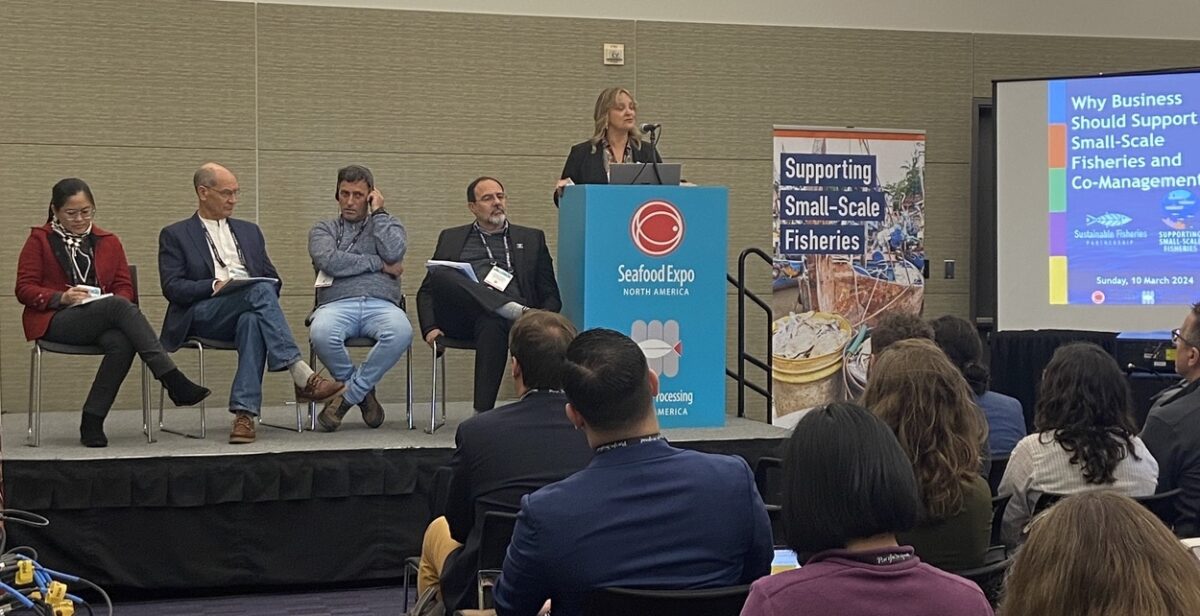
(L-R) Josette Genio, Sustainable Markets Specialist, Bluer Seas Philippines; Hugh Govan, International Board Member, Fisheries Transparency Initiative (FiTI) and Adjunct Senior Fellow, University of the South Pacific – School of Law and Social Science; Claudio Pichaud, President, Ancud Crab Producers’ Committee; Andre Brugger, Sustainability & Compliance Manager, Netuno USA; Amber Von Harten, SFP Supply Chain Roundtables Director
The seafood industry cannot always wait for the government to develop a legal framework for sustainable management of small-scale fisheries, Andre Brugger, sustainability and compliance manager at Netuno USA, noted at a panel sponsored by SFP. Instead, he said, “let’s solve the problem ourselves.” A key part of this process is “participation of the fishers in the building of the framework. They need to be at the table to help us construct the solution,” he added.
Noting that 95% of fishing in the Philippines is from the small-scale sector, much of it staying in the domestic market, Genio emphasized that improving the performance of these fisheries is important for food security, reducing poverty and ensuring more sustainable livelihoods in the Philippines. Bluer Seas Philippines is working with industry to develop a domestic Responsible Seafood Sourcing (RSS) standard. When they started this work, there was “zero demand for sustainable seafood in the domestic market,” Genio said. “But three years later, the supply can’t keep up with the demand.”
Reflecting on his years of work with fisher groups and governments in the small-scale sector, Govan noted that the “one big remaining angle” is determining what the private sector and the supply chain can do. He recently worked with SFP to develop new small-scale fishing scores for FishSource, as an important step toward bringing small-scale fisheries issues into certifications and ratings systems, from which they are often excluded.
One of the key challenges for the Chilean Stone Crab FIP, Pichaud noted, is getting the companies who buy their product, many of whom have bought crab from them for decades, to support the FIP.
Brugger echoed this sentiment: “If we say our product comes from a FIP, but we are not supporting the FIP, shame on us.”
SFP’s Supporting Small-Scale Fisheries initiative focuses on building the enabling conditions for positive change in fisheries governance systems and fairer distribution of benefits, through effective co-management of fisheries.
